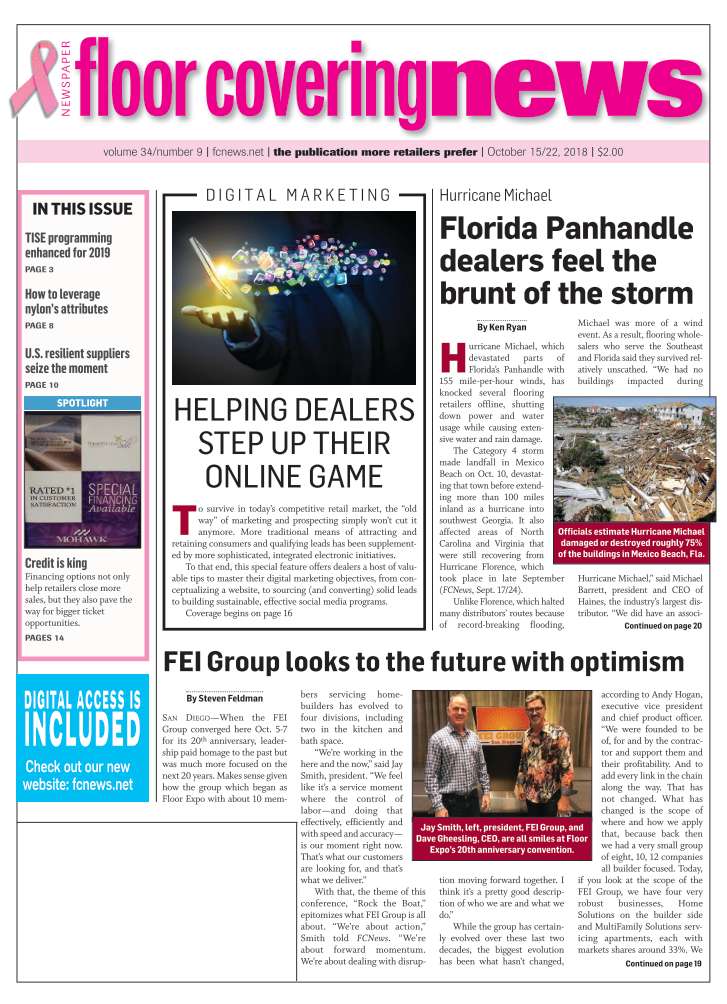October 15/22, 2018: Volume 34, Issue 9
By Tom Jennings
 Recently while having lunch at a nice restaurant, I observed an example that everyone in management should have witnessed. At an adjoining table, a service technician for a local automobile dealership was seated with the firm’s general manager. The manager proudly told the server that his companion had won a contest for having received the highest ratings during the previous quarter for customer satisfaction. His instructions to the server were: “He is a winner—give him whatever he wants.”
Recently while having lunch at a nice restaurant, I observed an example that everyone in management should have witnessed. At an adjoining table, a service technician for a local automobile dealership was seated with the firm’s general manager. The manager proudly told the server that his companion had won a contest for having received the highest ratings during the previous quarter for customer satisfaction. His instructions to the server were: “He is a winner—give him whatever he wants.”
The entire time I was sitting there soaking this all in, I was thinking that I was observing a boss who “gets it.” Boy, was I wrong. For the next 30 minutes, what I mostly observed was a service technician having lunch by himself.
The manager must have taken half a dozen phone calls, each with the excuse that, “I need to get this; it’s important.” In addition, he must have sent a barrage of text messages during the meal. Seemingly, the minute the employee swallowed the last bite of his meal, the manager said, “If you are done we may as well head back.” Can you believe that? This entire scenario had so many behavior flaws, I could hardly eat my lunch. I really wanted to walk over to that table and give the employee a hug.
Throughout this experience, one thing was painfully obvious to me: Clearly the boss did not want to be at this restaurant at this time with this person. He was merely fulfilling an obligation that someone else had entered on his calendar. His body language clearly said he had no real interest in learning anything about this employee on a personal level. He made no attempt to discover any common interests they may have shared. Nor did he make any mention of the exemplary behavior that earned the employee the opportunity to be acknowledged. What he basically expressed to this guy repeatedly—without actually stating it outright—was that his phone calls were more important to him than the occasion that had brought them to lunch.
To this observer, what a few minutes before had appeared to be a genuine gesture of reward had instead been exposed as merely a promotional stunt.
What this manager clearly failed to realize is that over time it is impossible for an employee to consistently treat his customers better than he is being treated by management. He may genuinely attempt to do so at first, but eventually it is certain his spirits will wane. The result will either be him giving more indifferent service or, more likely, seeking another place of employment where the attitude is more to his liking.
When this occurs, I can just hear this supervisor saying that “good help is hard to find today.” From the employees’ perspective, I think many people would be justified in making a similar statement regarding management.
Remember that the honored employee did not just desire a free steak dinner; he also felt he had won a period of undivided attention from his boss. That is really what he bragged about to his friends and family. From where I sat, I hope his lunch went down well, because the treatment I observed him receiving was really hard for me to swallow.
Tom Jennings is vice president of professional development for the World Floor Covering Association (WFCA). Jennings, a retail sales training guru, has served in various capacities within the WFCA.

